United States Supreme Court divided over judges’ power in citizenship case Bernd Debusmann Jr and Kayla Epstein BBC News Watch: Should judges have the ability to obstruct Trump on bequest citizenship? United States President Donald Trump took his quote to end bequest citizenship to the United States Supreme Court on Thursday, in a case that might assist even more his program on migration and other problems. The case asks whether lower court judges need to have the ability to obstruct governmental orders for the whole nation – as they have actually performed in this case. The justices did not appear to reach an agreement as they thought about both sides. The United States lawyer basic argued that lower courts violated their authority, stating this power must be reduced. The New Jersey lawyer general – arguing on behalf of a group of states – stated siding with Trump would produce a patchwork system of citizenship. This would develop “chaos on the ground”argued the legal representative, Jeremy Feigenbaum. It is unclear when the court will release its choice. If it concurs with Trump, then he might continue his extensive usage of executive orders to make great on project guarantees without needing to wait on congressional approval – with restricted checks by the courts. Justices throughout the ideological spectrum appeared to face 2 problems throughout Thursday’s two-hour hearing. There was questioning of lower courts’ power to obstruct a governmental order across the country. And the justices likewise thought about the benefits of the bequest citizenship order itself – which critics argue breaches the 14th Amendment of the United States Constitution and Supreme Court precedent. United States Solicitor General D John Sauer, arguing on behalf of the Trump administration, stated lower judges did not can put lengthy legal barriers in front of the Trump Administration’s program. He argued the existing system “required judges to make rushed, high-stakes, low-information decisions”Sauer proposed class-action claims – which enable great deals of complainants to take legal action against together – as one possible option. Justices and Sauer’s challengers kept in mind that this procedure was lengthy and did not offer relief in emergency situation situations. The justices grilled Sauer for over an hour, with liberal Justice Elena Kagan keeping in mind that the administration had actually lost on the bequest citizenship concern in every lower court. “Why would you ever take this case to us?” she asked. Another liberal justice, Sonia Sotomayor, made the contrast with weapon ownership, stating if any future administration wanted to eliminate individuals’s weapons, the courts would be helpless to stop them. Justice Samuel Alito, among the court’s most popular conservatives, appeared important of the lower court’s power to provide across the country injunctions.
“Sometimes they’re wrong,” he stated, including that some lower court judges were “vulnerable to an occupational disease, which is the disease of thinking that I am right, and I can do whatever I want.”
Reuters Representatives consisting of Democrat Nancy Pelosi participated in demonstrations outside the court Feigenbaum, arguing on behalf of states declaring damage from the executive order, stated siding with the Trump administration on this matter would be unwise and unconstitutional. Getting rid of the alternative for across the country injunctions might develop a patchwork citizenship system, he argued, where a person might have status in one state, however lose it when crossing into another. Feigenbaum stated this requirement would have a hazardous effect on circulation of federal government advantages like Medicaid, migration enforcement, and keeping precise stats.
“Since the 14th Amendment, our country has never allowed American citizenship to vary based on the state in which someone resides,” Feigenbaum stated. As the justices lobbed concerns at the legal representatives, a big group of protesters collected outside to voice opposition to Trump’s migration policies. Congresswoman Nancy Pelosi, the previous speaker of your home of Representatives, signed up with the demonstrators outside and check out from the United States Constitution.
“This is about birthright, it’s about citizenship, it’s about due process,” she stated. Trump has actually sworn to end due citizenship. Can he do it? It is uncommon for the Supreme Court to hold a hearing in May, and there is no indicator of when it might rule. Trump selected 3 of the 9 justices on the conservative-majority court in his very first term. Numerous legal professionals state the president does not have the power to end due citizenship due to the fact that it is ensured by the 14th Amendment of the United States Constitution. Even if Trump wins the existing case, he might still have to combat off other legal obstacles. Particularly, the 14th Amendment states that “all persons born or naturalised in the United States, and subject to the jurisdiction thereof, are citizens”In the executive order, Trump argued that the expression “jurisdiction thereof” suggested that automated citizenship did not use to the kids of undocumented immigrants, or individuals in the nation momentarily. Federal justices in Maryland, Massachusetts and Washington, nevertheless, provided across the country – or universal – injunctions that obstructed the order from being implemented. The injunctions, in turn, triggered the Trump administration to argue that the lower courts surpassed their powers. The case being heard in the Supreme Court comes from 3 different claims, both from migration supporters and 22 US states. The Trump administration has actually asked the court to rule that the injunctions can just use to those immigrants called in the event or to the complainant states – which would permit the federal government to a minimum of partially perform Trump’s order even as legal fights continue. Almost 40 various court injunctions have actually been submitted because the start of the 2nd Trump administration, according to the justice department. In a different case, 2 lower courts obstructed the Trump administration from implementing a military transgender restriction, although the Supreme Court ultimately stepped in and permitted the policy to be imposed. An end – even a partial one – of due citizenship might affect 10s of countless kids in the United States, with among the claims arguing that it would “impose second-class status” on a generation of individuals who were born, and have actually just lived, in the United States. Alex Cuic, a migration attorney and teacher at Case Western Reserve University in Ohio, informed the BBC that a possible end of due citizenship might require a few of these kids to end up being undocumented or perhaps “stateless”
“There’s no guarantee that the countries where their parents are from would take them back,” he stated. “It would not even be clear where the government could deport them to.”

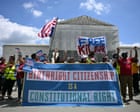

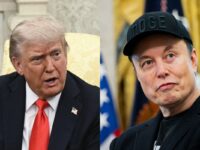

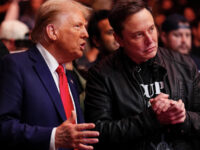
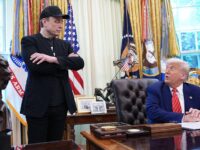



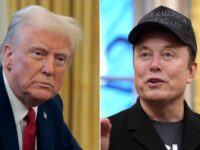

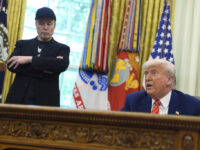









0 Comments